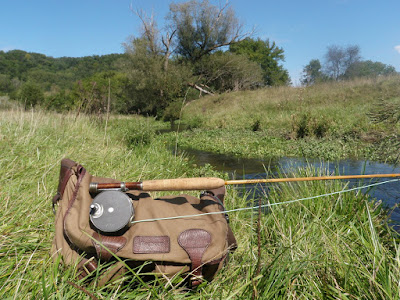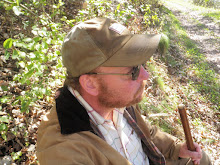To the casual angler these concepts might be the same, so why an essay on fishing vs. catching? Because they are different. Fishing can be equated to a symphonic journey. There is the opening theme, explorations of the theme and digressions, building on the theme and tension and the final release of that tension at the end which leaves one feeling exhausted and fulfilled and refreshed all at the same time. Catching is just the final act. We miss the whole process, the whole experience. Only part of the music is heard.
The act of fishing is a hope in itself. If the journey is long and obstacles are overcome and anticipation mixes with temporary defeats, oh how much joyous when we bring the fish to hand.
The little problems of fly-fishing constitute so much of that journey. How do we get a fly to that fish tucked under the tag alders? How can we make that cast across conflicting currents? Is this the right fly? Would an emerger be a better choice? Why didn’t that fish eat my fly? What kind of bird is that? These intensely absorbing little problems are the meat that makes the sip of wine at the end taste so much better. Enjoy the whole meal, not just the desert if you will.
What if we were fated like Theodore Castwell to catch a fish on every cast? We would be in hell much like old Ted.
Predictability is the enemy of variety, and variety is the spice of our angling. NOT knowing what is around that next bend of the river is as important as knowing what fly the fish are taking. The inability to predict results and the dilemmas that arise make us think and reason, speculate and form theories, which change every time the river bends again.
We are involved in the hope for a bright connection, not just connected without connection like Mr. Castwell. If the fishing is good, we need to judge how much is ‘Enough.’ If we don’t, we may become drunk with reward and no longer taste the wine.
I hooked my largest fish of the year on a bamboo fly rod resurrected from the dead by an expert restorer. It is a unique rod to say the least. It may be one of a kind and the maker was an eccentric genius. I fought the fish and got a jump out of it… enough to tell that it was a chrome female steelhead with just a hint of rose around the cheek. Then the fish got off. I smiled and walked off the run, leaving it to my two partners. I had sipped this exquisite wine and tasted enough. Another time I hooked and landed a beautiful fish in Idaho, and spent the rest of the time on the run eating wild blackberries at riverside.
Was I slowing down, or just sucking the marrow out of life without as the quote goes “Choking on the bone…?” Perhaps both, for they are related.
The anglers I enjoy fishing with the most appreciate time on the water without qualifications. A few fish may equate a great day, as does seeing an eagle, making a memorable cast and hooking an especially difficult trout of only 10 inches, enjoying a good apple and sandwich on the bank, or simply being happy for someone else to express joy at catching a fish.
The word ‘Memorable’ stands out to me here, for when I close my eyes and begin to drift off to sleep, I never see the fish, only the beautiful scenery and the water. Those memories are what we are out there for, not just numbers of fish.
But then there IS the catching element, and without it the journey would rather lack a conclusion, however scenic and memorable that journey is. If we got skunked all the time, we would be in a different little corner of hell than Mr. Castwell, but just as bothered. Getting skunked can also be a good thing, for it wets the appetite. We will get them ‘Next time!’ When that next time comes the wine tastes just a little bit sweeter.
So I will be fishing tomorrow. Catching? That remains to be seen… but I will savor the day nonetheless.










